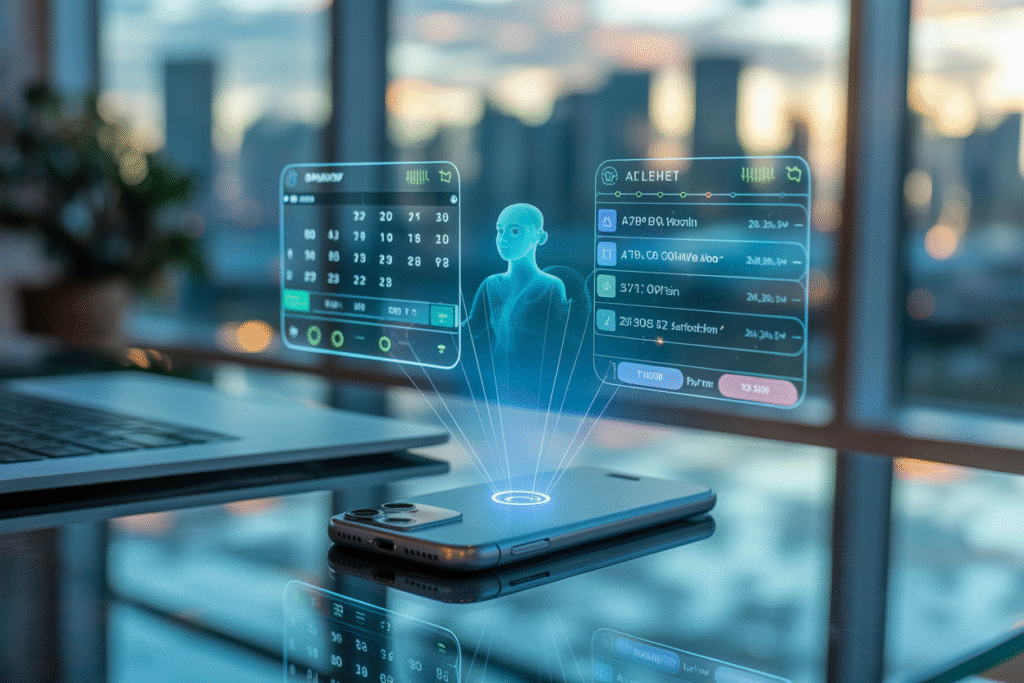Apple may have to drop a cool $100 billion on AI just to keep the iPhone from becoming yesterday’s news.
Imagine waking up tomorrow and never touching your iPhone again. Instead, an invisible AI agent books your ride, orders coffee, and schedules your day—all without a single swipe. That future is closer than you think, and Apple might have to spend a staggering $100 billion just to stay in the game.
The $100-Billion Question
Dylan Field, design guru and a16z partner, dropped a bombshell on X: Apple could lose its famous walled garden unless it pours $50–100 billion into AI infrastructure. The reason? AI agents are poised to replace screens as the main way we interact with tech.
Think about it. If your agent can hail a ride, draft emails, and edit photos without ever opening an app, why would you need a home screen crowded with icons? Apple’s tight grip on user experience suddenly loosens.
Field argues that hardware alone won’t cut it anymore. The next battleground is the agent layer, and whoever controls that layer controls the customer. Apple’s choice is stark—spend big or fade into the background.
Why the Walled Garden Is at Risk
Apple’s walled garden works because every tap, swipe, and purchase happens inside its ecosystem. That control drives App Store revenue, accessory sales, and brand loyalty.
AI agents threaten that model in three ways:
• They live in the cloud, not on the device.
• They talk to any service that answers fastest, bypassing Apple’s gatekeepers.
• They commoditize hardware—if the agent is brilliant, the phone becomes a dumb pipe.
Picture this: you ask your agent to book a flight. It scans Google Flights, Expedia, and a dozen startups, then picks the cheapest option. Apple never sees a dime. Multiply that by every daily task and the revenue leak becomes a flood.
The Arms Race Nobody Talks About
OpenAI, Google, and Anthropic are already racing to build the smartest agent. Each wants to be the default assistant that every other service plugs into.
Apple has the cash—over $160 billion in the bank—but spending it means betting the company on a technology that could cannibalize its own products. That’s a CEO-level nightmare.
On the flip side, not spending guarantees a slow slide into irrelevance. Remember BlackBerry? It owned keyboards until touchscreens arrived. Apple could own premium hardware until agents arrive.
The clock is ticking. Every quarter Apple waits, competitors gather more data, more users, and more momentum. In AI, data advantage compounds like interest in a savings account—except this account pays in market share.
What Happens to Users If Apple Loses
If Apple cedes the agent layer, daily life changes in subtle but profound ways.
Privacy could erode. Apple’s on-device processing keeps your data local. Cloud agents owned by rivals may not. Suddenly your calendar, photos, and messages live on someone else’s server.
Choice might shrink. The dominant agent could favor its parent company’s services, nudging you toward Google Flights or Amazon shopping even when better options exist.
Yet innovation could accelerate. Freed from Apple’s strict rules, developers might roll out wild new features overnight. Imagine AI agents that negotiate lower bills, cancel subscriptions you forgot, or remix your vacation photos into a short film—all without asking permission.
So, will Apple write the $100-billion check or risk becoming the next cautionary tale? The answer will shape how we interact with technology for the next decade.


